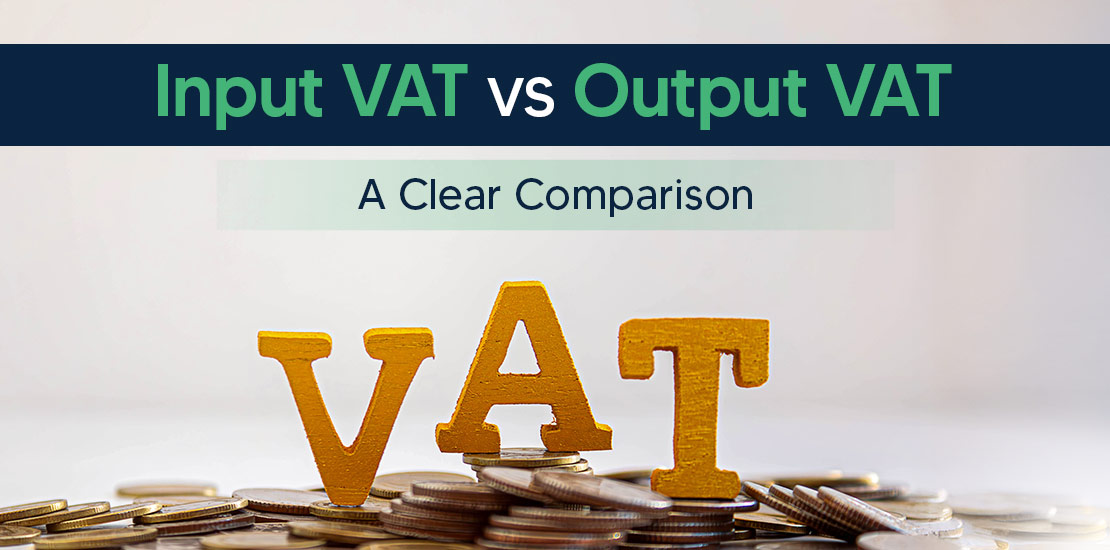Filing VAT returns is a mandatory step for businesses in the UAE to stay compliant with the Federal Tax Authority (FTA). This process requires businesses to submit VAT returns quarterly or monthly, depending on their taxable supplies.
In this guide, we’ll explore the essential documents required for VAT return filing in UAE, helping you avoid penalties and ensure smooth compliance.
What is VAT Return in UAE?
In the UAE, a VAT return is a mandatory filing for businesses registered under the Value Added Tax (VAT) system. It serves as a formal statement to the Federal Tax Authority (FTA), detailing the VAT collected on sales (output VAT) and the VAT paid on purchases (input VAT) during a specific tax period.
The filing frequency can be quarterly or monthly, depending on the business size and type. A VAT return includes information on total sales, purchases, and any adjustments from previous periods. If the VAT collected on sales exceeds the VAT paid on purchases, the business must pay the difference to the government.
Conversely, if the VAT paid on purchases increases, the business may claim a refund or carry the amount forward. VAT returns must be filed online via the FTA portal within 28 days of the tax period’s end.
VAT Return Filing Requirements in the UAE
To ensure compliance with UAE VAT laws, businesses must adhere to specific requirements when filing VAT returns. Understanding the critical aspects of this process is essential for accurate and timely submissions. Here’s an overview of the core elements involved:
Tax Periods
The Federal Tax Authority (FTA) determines the frequency of VAT returns based on a business’s taxable supplies over the preceding twelve months. Businesses with taxable supplies exceeding AED 150 million must file their VAT returns monthly.
Those with supplies between AED 37.5 million and AED 150 million file returns quarterly, while businesses with taxable supplies below AED 37.5 million can file biannually.
Due Dates
VAT returns are typically due by the 28th day of the month following the end of the tax period. However, businesses registered as part of a Tax Group enjoy an additional 15-day grace period.
It allows them to file by the 15th day of the following month. Adhering to these deadlines is critical, as late submissions may incur penalties.
Filing Methods
Businesses can file VAT returns electronically via the FTA’s official portal (EmTax). Alternatively, companies may engage a Tax Agent to manage the filing process.
These agents are authorised professionals who ensure compliance with VAT regulations, providing peace of mind for businesses with more complex tax requirements.
By understanding these requirements—tax periods, deadlines, and filing methods—businesses can direct VAT return filing in the UAE more effectively and avoid potential fines or compliance issues.
Documents Required for VAT Return Filing in UAE
To file your VAT return successfully in the UAE, certain documents required for VAT return filing in UAE must be prepared in advance.
Trade License: A valid trade License is a must for any business operating in the UAE. It serves as your legal foundation for VAT registration and future filings.
Tax Registration Certificate (TRC): Issued by the FTA upon registration, your TRC includes your VAT registration number, necessary for filing VAT returns.
Tax Invoices: Every transaction should be supported by accurate tax invoices containing essential details such as supplier and recipient information, VAT amounts, and descriptions of goods or services.
Purchase Invoices: Document VAT paid on purchases to claim input VAT credits.
Financial Reports and Bank Statements: Clear financial records help ensure accurate VAT calculations and compliance.
Import and Export Declarations: Required if your business engages in international trade to validate VAT payments and claim zero-rating.
Credit Notes and Debit Notes
Credit and debit notes adjust previously issued invoices due to errors, returns, or cancellations. Proper documentation and justification of these notes are essential for maintaining correct VAT records.
Records of Reverse Charge Mechanism
For industries where the reverse charge mechanism applies, the recipient, rather than the supplier, is responsible for paying VAT. Maintaining accurate records of these transactions is crucial for VAT return filing.
Audited Financial Reports
If your business is subject to external audits, you may need to provide audited financial reports when filing VAT returns. These reports should be prepared thoroughly to avoid penalties from the FTA.
Additional Requirements
In some cases, businesses may also need to submit specific details such as:
Profit Margin Scheme: Provide the required documentation if your business is part of this scheme.
Goods Transferred to GCC States: Any transfer of goods to other GCC countries must be reported.
VAT Paid on Personal Imports: Personal imports subject to VAT should be recorded.
Transportation of Goods: Details on transportation of goods to other GCC countries need to be documented.
Key Points for VAT Return Filing
Here are some essential tips to remember:
- All amounts should be reported in UAE Dirhams (AED).
- Round off all amounts to the nearest fields.
- VAT returns must be submitted to the FTA by the 28th day following the end of the tax period. If this falls on a weekend or public holiday, the deadline extends to the next business day.
Failure to submit VAT returns on time can result in penalties. For instance, an initial fine of AED 1,000 may apply, with a further fine of AED 2,000 for repeat offences within 24 months.
How Shuraa Tax Can Help You with VAT Return Filing
Navigating VAT return filing in the UAE can be challenging, especially when it comes to ensuring that all documents required for VAT return filing in UAE are prepared correctly. Shuraa Tax provides expert services to help you meet compliance standards, submit accurate VAT returns, and avoid costly penalties.
Contact us today at +971508912062 or info@shuraatax.com to learn how we can assist with your VAT return filing. By staying organised and compliant, you can focus on running your business while we handle your tax obligations efficiently.
Related guides:













